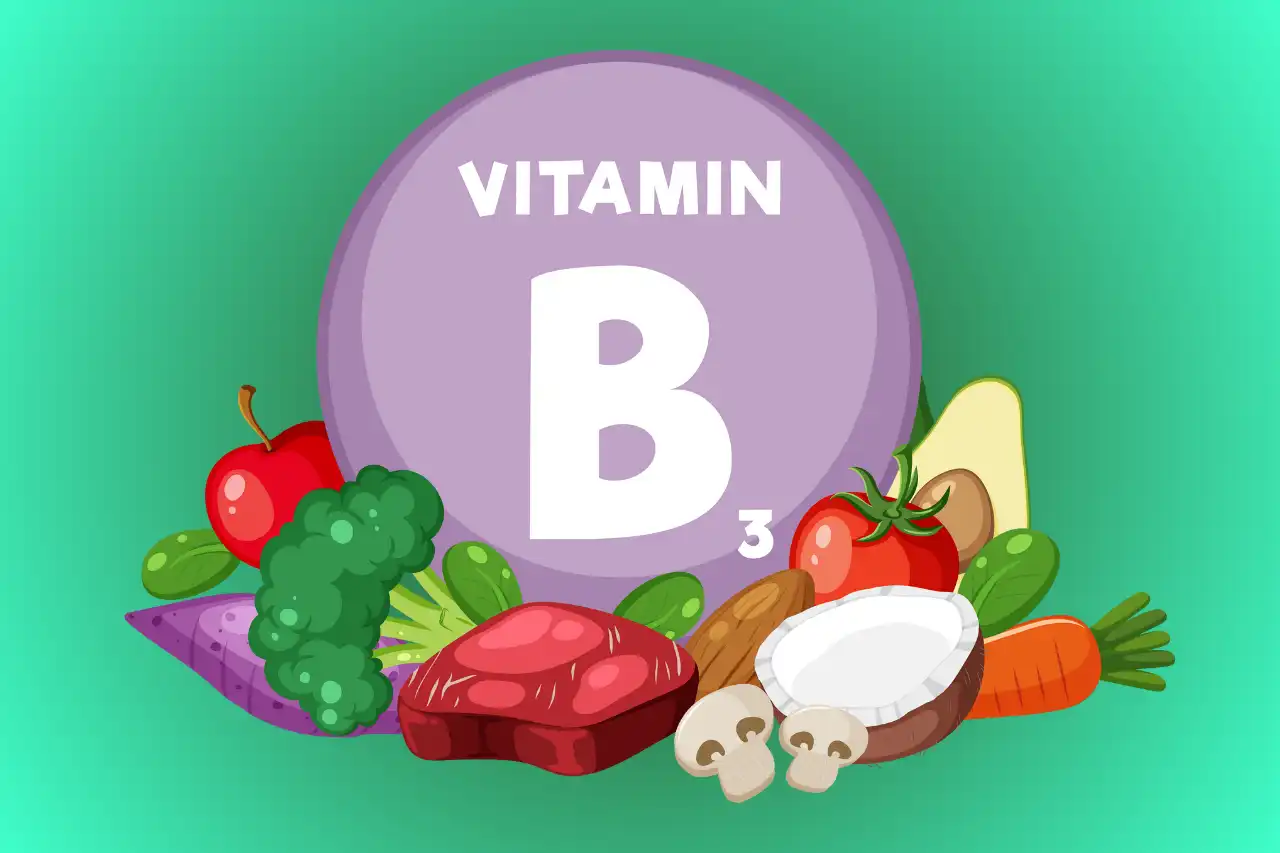-: VITAMIN – A :-
Vitamin A is a fat-soluble vitamin essential for vision, immunity, and cell growth. It exists in two main forms: retinoids (from animal sources) and carotenoids (from plant-based sources, like beta-carotene). The body converts carotenoids into active vitamin A as needed.
Daily Requirements
Men
- Men 14+ years – 900 mcg per day
Women
- Women 14+ years – 700 mcg per day
- Pregnant Women – 700 mcg per day
- Brest feeding Women – 1,300 mcg per day
Children
- Children (1-13 years) :- (300-600 mcg) per day
Function on different Organ
- Skin
Details
Promotes cell regeneration, prevents dryness, and reduces acne.
- Eye
Details
Supports vision, prevents night blindness, and maintains a healthy cornea.
- Lungs
Details
Maintains healthy lung tissues and reduces respiratory infections.
- Heart
Details
Helps regulate cell growth, reducing the risk of cardiovascular diseases.
- Bones
Details
Assists in bone remodeling, preventing fractures.
- Gut
Details
Maintains healthy mucous membranes for better digestion and nutrient absorption.
- Reproductive System
Details
Supports fertility in both men and women and ensures healthy fetal development.
- Immune System
Details
Enhances white blood cell production, helping fight infections.
Symptoms incase of Deficiency
- Night blindness (difficulty seeing in low light).
- Dry eyes (xerophthalmia), which can lead to blindness.
- Weakened immune system, leading to frequent infections.
- Dry skin and Dry hair.
- Delayed growth and development in children.
Diagnosis
- Serum Retinol Test or Vitamin A Blood Test
Details
The blood test used to measure vitamin A levels. It measures the amount of retinol (the active form of vitamin A) in the blood to check for deficiency or toxicity. This test is usually recommended if there are symptoms of vitamin A deficiency (like night blindness) or excessive intake (hypervitaminosis A).
Food Sources
Veg Sources
- Fruits
- Apricot
- Cantaloupe
- Grapefruit
- Guava
- Mangoes
- Papaya
- Watermelon
- Vegetables
- Black-eyed peas
- Broccoli
- Carrots
- Cauliflower
- Kale
- Pumpkin
- Romaine lettuce
- Red bell peppers
- Sweet potatoes
- Spinach
Non-Veg Sources
- Chicken Liver, Beef Liver, Fish liver oil
- Eggs
- Dairy products (milk, cheese, butter)
- Fatty fish (salmon, mackerel, tuna)
What if Overconsumption
Remember the upper limit for adults is 3,000 mcg to avoid toxicity. While vitamin A is essential, excessive intake (especially from supplements) can lead to hypervitaminosis A, which may cause:-
- Nausea, dizziness, and headaches.
- Liver damage.
- Bone thinning, leading to fractures.
- Birth defects in pregnant women.
Vitamin A is a super-nutrient that supports vision, immunity, and overall health. However, balance is key! A well-rounded diet with a mix of vegetarian and non-vegetarian sources can ensure adequate intake. Avoid excess supplementation unless prescribed by a doctor. When consumed wisely, vitamin A truly is a visionary vitamin for a healthier life!












